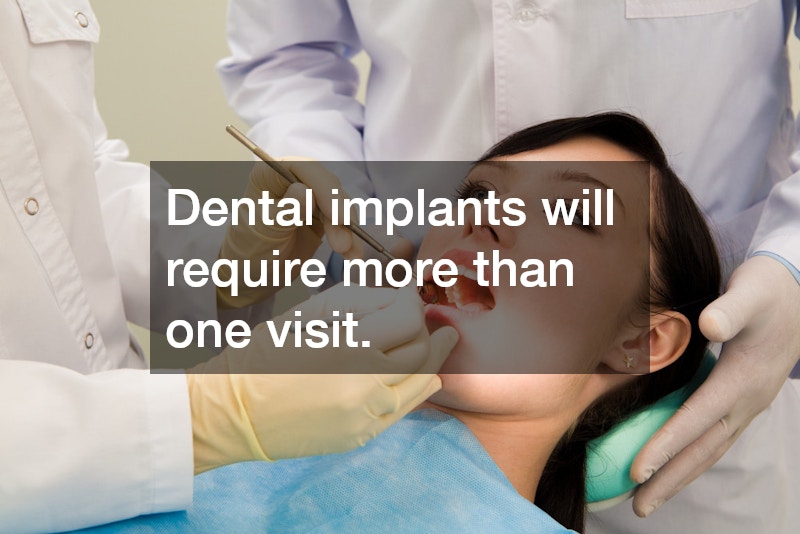
If you have a missing tooth or your dentist plans to extract one of your teeth, the dentist may also recommend a dental implant. According to the Mayo Clinic, dental implants will require more than one visit since they have more than one component. Your dental extraction and implant will begin with a visit to attach the base of the implant to the jawbone. Implants are typically made from titanium, and they will be placed when the extraction site has completely healed.

If you have more than one missing tooth, you may need extensive dental work, and the dentist may recommend surgical dentures. According to WebMD, surgical dentures are removable devices that are worn when a client is in the process of losing all their teeth. If surgical dentures are an option for you, they will be crafted before any remaining natural teeth are extracted.
Your dentist can tell you how to care for yourself after dental implant surgery. During the first 24 to 48 hours after the procedure, you may experience swelling, minor bleeding, and some pain. The dentist may recommend that you take Tylenol or an anti-inflammatory medication to ease the pain and swelling.

Your smile is one of your most important social assets. If you have less-than-perfect teeth, you can easily become self-conscious — if you have major, visible problems with your teeth (e.g. missing teeth, decayed teeth, severely discolored enamel), the psychological strain can become quite a burden. For many with extreme dental problems, implants can seem like the perfect solution. Here a few common questions about implants to help you make up your mind.
“Who needs dental implants?”
If your teeth are damaged all the way down to the root — where the root itself is no longer viable — you can benefit from dental implants. An implant serves as a complete tooth replacement, from the root up, so that you can regain the full function of your teeth, and not be restricted by diet or concerned about your appearance.
“What are implants made of?”
The dental implants dentists use are made of titanium, a very strong, light metal that rarely causes any kind of immune reaction. Titanium is the metal of choice for implants in any part of the body, from hips to joints to the skull itself.
“How do they work?”
The titanium post is surgically inserted into you jawbone, deep into the socket where your natural root used to be. Over a period of six-to-twelve weeks, the jawbone heals around the post, holding it tightly in place. Once the healing is complete, and the new root can withstand the forces generated by the jaw muscles, a false tooth is installed on top of the implant.
“How many teeth can be replaced in this way?”
An implant can hold a single tooth or multiple teeth. An entire set of dental partials can be placed on as little as four implants, depending on the strength and thickness of the jawbone at key points. Dental partials can also be removable or permanently fixed to the implants. Helpful info also found here.

